New Year’s Eve party at friends’ place: optical illusions and science experiments
New Year’s Eve 2006/2007 party at my friends’ P and M place.
P (front) and M (back)
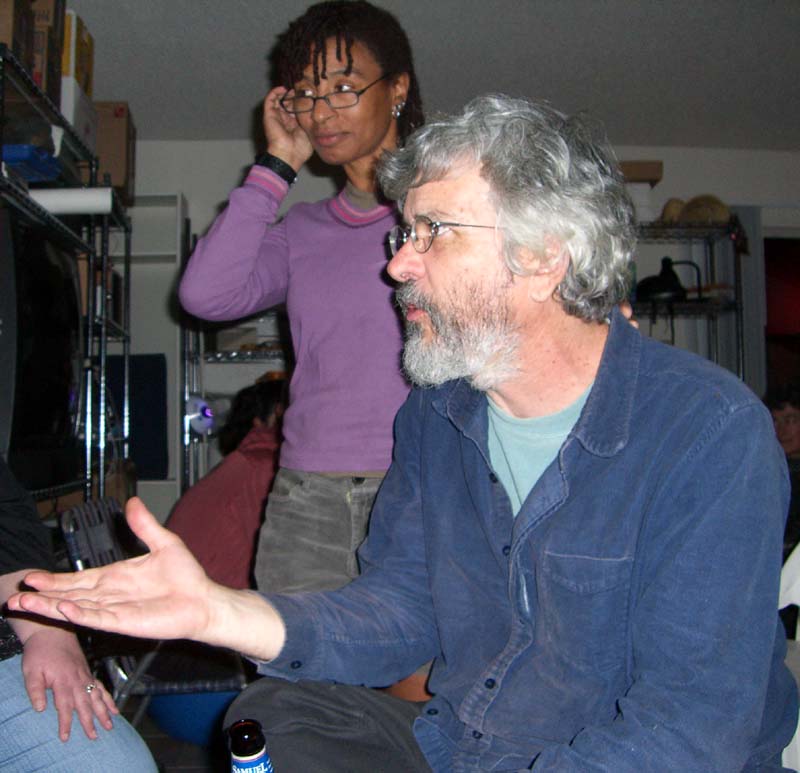
M demonstrates a mask P made from a cast of her face
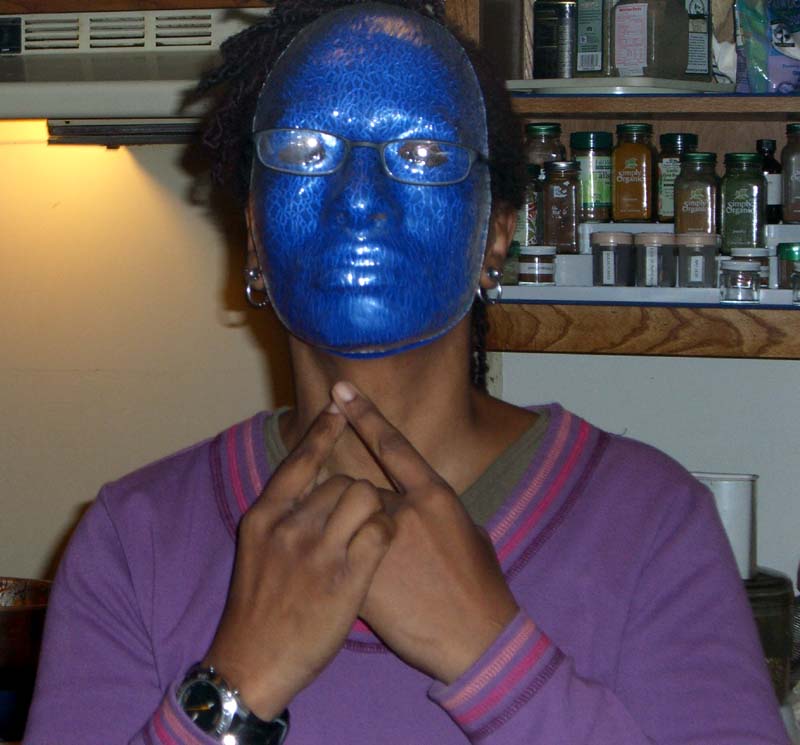
K, A, and M with a mask
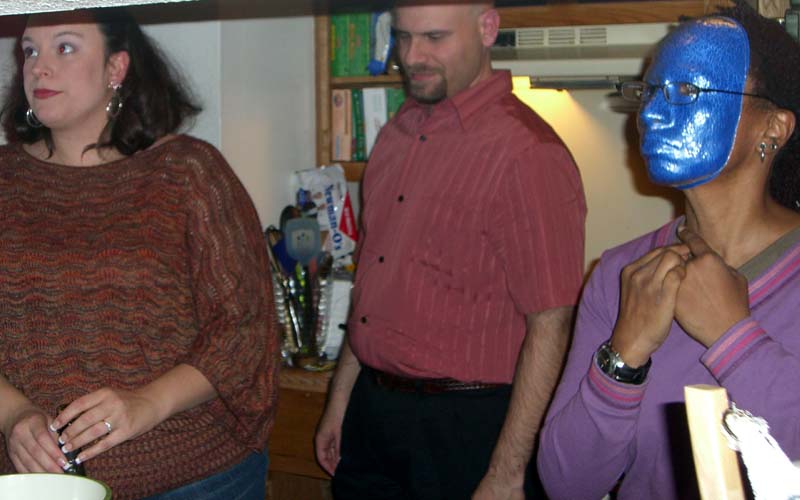
P and M at that time were making face casts from alginate, and making masks from those face casts. (A couple of months later they made a cast of my face, which I documented here.) Here, P holds a face cast he made. The cast is convex from one side and concave from the other. The interesting thing is that you can’t tell by looking at it which is which. That is, if you are looking at it from the concave side — i.e. if you are looking into the inside of the cast — your brain quickly convinces you that you are looking at the outside! So for example, in this picture, it’s the inside of the cast that’s turned towards the viewer, but it looks as if it’s the outside.
An even more interesting optical illusion is attained if the viewer closes one eye (although it’s possible to attain it with both eyes, it’s harder). Then as the viewer turns his/her head, it looks as if the mask turns its head too, its gaze following the viewer!

P performs an experiment of crushing a beer can by exposing it to temperature difference. He heats the can over a stove, causing the air inside it to heat up, then dips the can in a bowl of cold water. As the air inside shrinks, the can instantly implodes.
He starts out by heating an upside-down beer can on the stove. The can is empty except for a few drops of water, since he washed it out before heating. In the video, P speculates whether the presence of the small amount of water in the can makes a difference (when heated, it turns into steam). At some point he plans to perform another experiment with a completely dry can and compare the results.
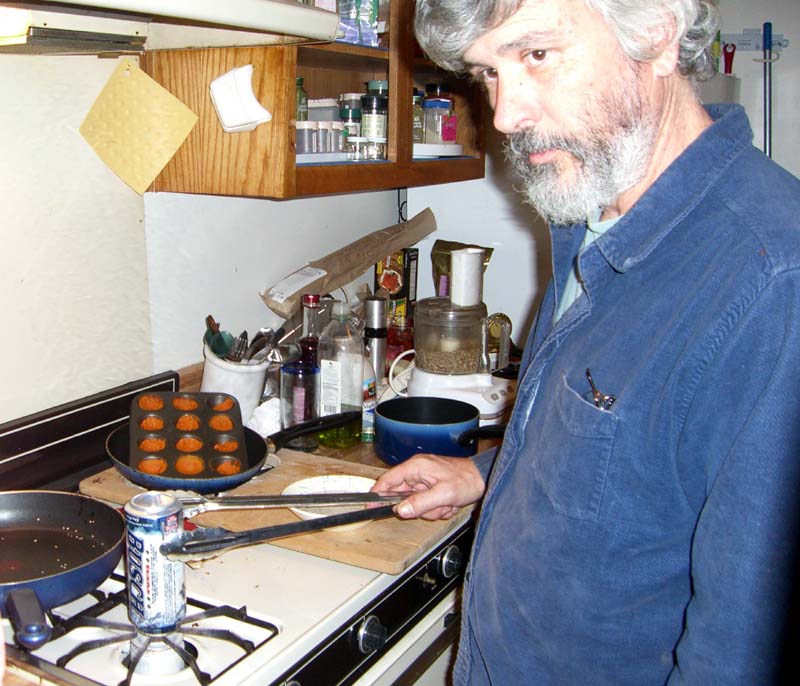
Here is the beer after being dipped in cold water. It looks like it’s been crushed.
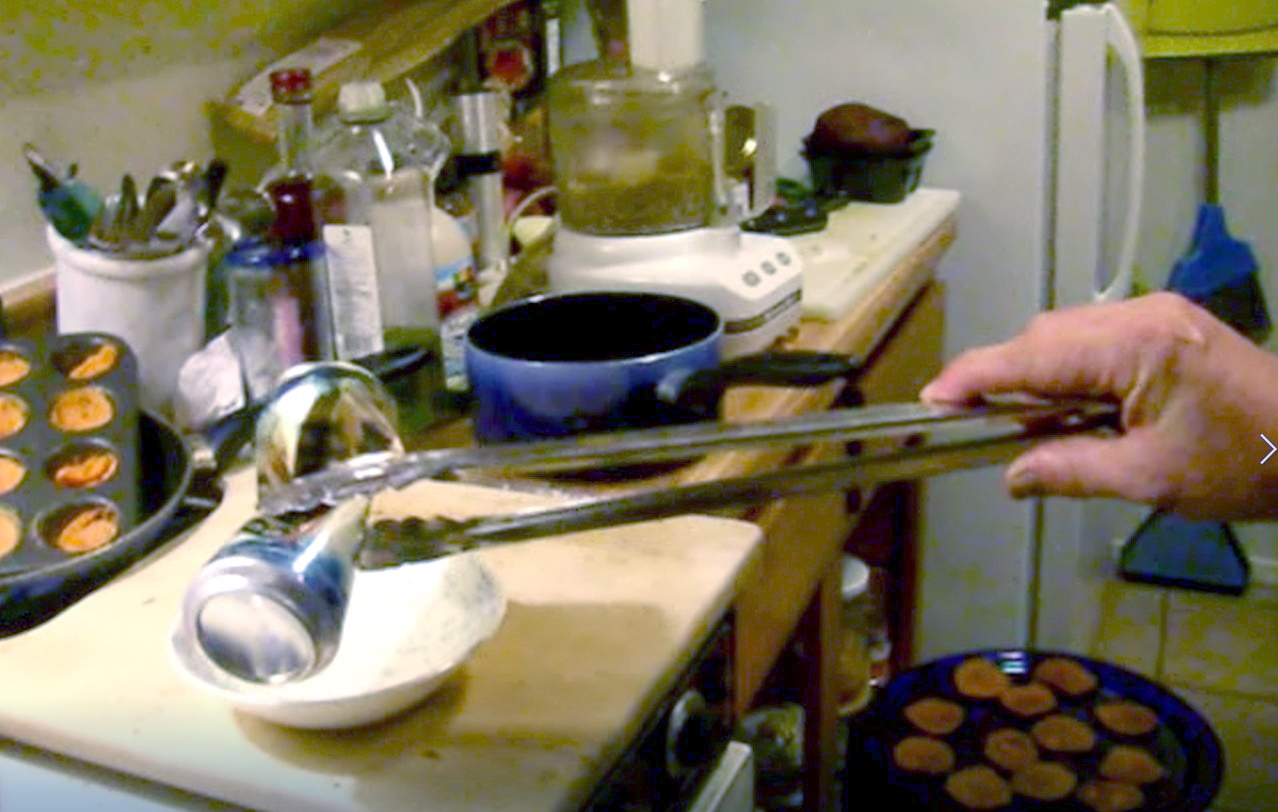
A and K
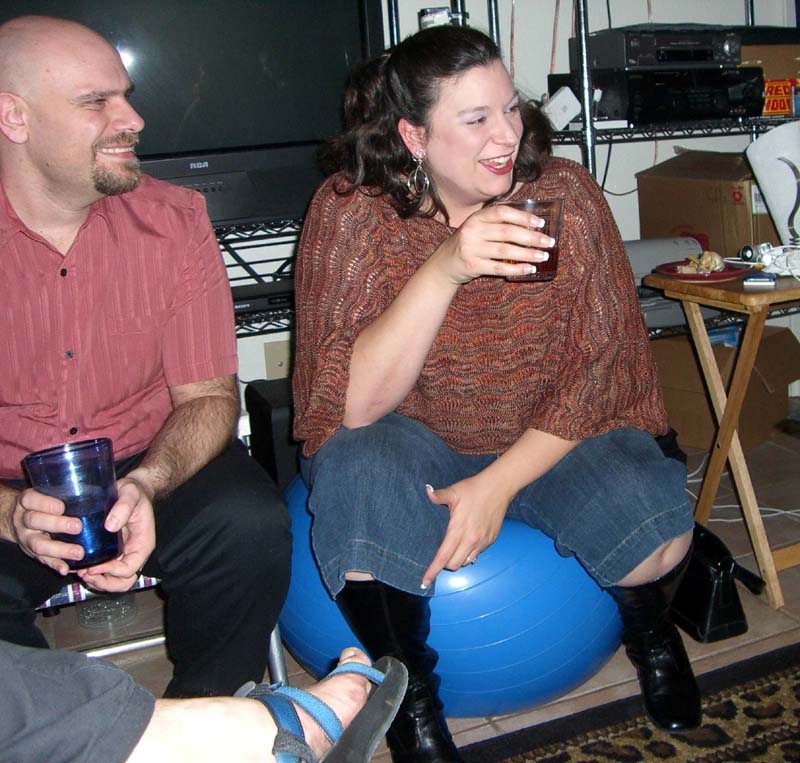
A, M, and S
